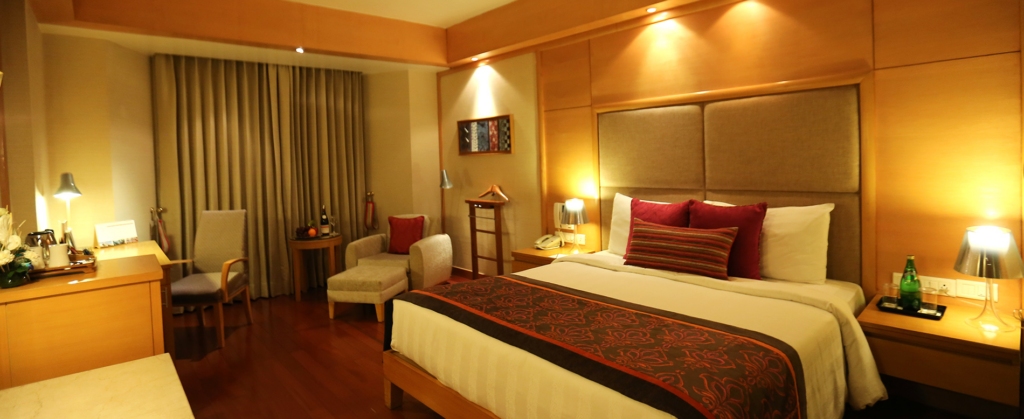We’ve all been there – a fun day at the beach or a messy meal in the hotel room leads to towels accidentally getting stained. But will hotels charge your credit card if you leave towels stained?
Let’s dig into the nitty gritty details of hotel towel policies.
In most cases, no. We’ll explain hotel towel staining policies so you can stop stressing about surprise fees.
Are You Looking For Best 18+ Hotel To Stay?
Check out Our Guide on the Best Hotels With 18+ check-ins in the United States.

What Types of Stains Could Lead to Charges
Bodily fluid stains may incur special cleaning charges.
The main type of staining that hotels specifically call out to charge for is bodily fluid stains.
These stains often require special biohazard cleaning procedures to fully sanitize for the next guests. Charges for blood, vomit, or other bodily fluid stains on linens may range from $50-100+.
While booking a hotel for 18+ people in the United States, make sure to review the terms and conditions of hotels.
1. Very Difficult To Remove Strain
Hotels also often prohibit drying your hair or other very stubborn staining that ruins towels during your stay.
Expect fees if you leave towels splattered with hair dye, permanent marker, or other irreparable staining.

2. Minor stains like food, dirt, and cosmetics typically won’t have charges
Many guests order pizza in their hotels as it is the most popular and best thing to order without thinking much.
As for the common staining – food, dirt, makeup, grass, juice, etc. – most major hotel chains don’t charge extra fees, even if you leave towels noticeably stained or dirty at checkout.
Their daily laundry facilities can handle washing out these routine stains accumulated through normal guest use.
Standard Hotel Towel Policies
Now that you know which stains set off hotel cleaning staff, what are standard hotel policies around towel use and stains?
1. Don’t remove towels from your room during your stay
Hotel towels remain the property of the hotel and removing them from your room may be considered theft.
Travel with your own reusable towels or robes if you need extras.
2. Report significant staining incidents during your stay
If a major staining incident like spilled hair dye does occur, notify housekeeping promptly.
Coming clean allows staff to attempt stain removal while you’re still on site instead of discovering it only once you’ve departed.
3. Expect only light, routine staining within reason
Hotels anticipate light wear and tear like makeup residue or food spills on towels through regular guest turnover and washing.
But they prohibit willful property damage or destruction through reckless staining.
4. Review hotel policies before your stay
Every hotel’s exact guidelines differ slightly, so review the fine print of rules around linens when reserving rooms or planning higher-risk activities like using hair dye.
That ensures no surprises around staining incidents and fees during or after your visit.
When Hotels Can and Can’t Charge Cleaning Fees
Between corporate smoking policies, varying housekeeping resources, and differences between budget properties and 5-star resorts, stain and cleaning fee rules can get confusing quickly.
Here’s a cheat sheet:
1. High-end hotels often prohibit major staining contractually
Pristine linens and decor are part of the luxury experience, so high-end hotels crack down hard on staining in-room contracts.
But also expect top-notch laundry facilities to handle the usual wear and tear.

2. Budget hotels likely can’t afford to rewash destroyed items
Conversely, economy hotels with tight profit margins rely heavily on corporate cleaning bulk contracts.
If you wreck towels, they may need to replace them entirely and pass that cost to you.
3. Charges require notifying the guest during their stay
Hotels can’t just quietly charge your card weeks later without notice.
If you’re informed of a fee for permanent staining before you check out, it’s likely legally valid. Dispute surprise charges that occur post-stay.
4. State consumer laws may restrict damage charges
Some state governments limit the circumstances when hotels can collect cleaning and damage fees.
Check if your destination has protections against surprise charges for minor staining incidents.
How to Avoid Potential Towel Staining Charges
Of course, it’s best to avoid the hassle of staining fees altogether. Follow these handy tips for keeping hotel towels pristine:
1. Travel with stain-prone toiletries in zip bags
A simple zip pouch keeps leaky shampoo bottles, loose makeup compacts, or any staining products contained away from plush towels.
Toss the gooey aftermath into the trash instead of hotel linens.
2. Hang up towels promptly if wet post-shower
Letting soaked towels sit bunched up is a recipe for mildew and permanent musty spots.
Unfurl towels to dry completely and avoid charges for irremovable odors or stains.
3. Blot spills immediately with a dry section
Promptly soaking up spills before they set prevents most staining incidents. Just don’t make the mess bigger by further smearing liquid around the towels’ surface area.
4. Zip stains inside pillow protectors until housekeeping arrives
If you do wake up to new staining on sheets or towels, conceal the evidence in disposable pillow/mattress covers.
Then notify staff to deal with the surprise stain gnomes that clearly invaded your room overnight!
Conclusion
Minor stains accumulated through regular overnight guest use won’t lead to surprise charges at most hotels.
However significant incidents like spilled hair dye or mistakenly tossing towels dotted with bodily fluids in the laundry basket could result in cleaning fees.
Be sensible to avoid damage, alert staff promptly to staining accidents, review hotel policies before assuming no rules exist, and travel prepared with protective pouches for likely leakers.
Following these rules helps ensure your vacation budget stays on track instead of paying for stained souvenirs!
